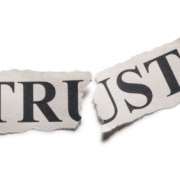It’s Time for a New Agenda for Business Integrity

Last November, I went to Dubai as a member of the World Economic Forum’s Global Future Council on Transparency and Anti-Corruption. A pandemic was the last thing on our minds. We spent three days thinking creatively and broadly about the future of integrity across institutions and cultures, and it quickly became clear to us that shaping a new approach to business integrity ought to be our top priority. If we, as a global society, are to meet our most pressing development challenges, including sustainable development goals, tackling corruption and abuse of power is a prerequisite. Eliminating corruption would instantly cover the cost of each of the other goals.
I and the other members of the Council all agreed that while the narrow, legalistic framing of anti-bribery efforts has led to impressive progress, it will not suffice for the 2020s. To drive meaningful change, businesses need to think more systematically about their relationship with society. They need to broaden their understanding of integrity to include building and retaining public trust, and this will require greater effort than simply meeting legal requirements.
The popular understanding of “business integrity” has gone far beyond the boundaries of any best-practice anti-corruption program.
Now we find ourselves in a remarkable crisis, with COVID-19 threatening to devastate most countries’ economies and health systems. Suddenly we can see how our governments and businesses perform in real time: which are rising to the occasion, which are failing? Almost every news outlet has published a list of corporate saints and sinners in the past week.
Companies retooling to provide essential medical equipment, or taking active steps to protect their workers, are commended. Those that simply shut down, furlough staff, or force anxious workers to show up are being roundly criticized. To record how businesses treat their stakeholders during this crisis, the organization Just Capital has launched a tracking tool.
All this comes shortly after the responsible investment world, laser-focused on climate change in recent years, broadened its range to encompass labor rights, with particular consideration of gig-economy employees who lack sick leave or other benefits. The popular understanding of “business integrity” has gone far beyond the boundaries of any best-practice anti-corruption program.
In this context, our new agenda for business integrity is more relevant than ever. The agenda has four pillars, and we will put forth more practical guidance on each of them over the next several months. We believe that business leaders must:
Commit to ethics and integrity beyond mere legal compliance, including a focus on the negative human rights impacts of corruption.
Strengthen corporate culture and incentives to drive continuous improvement, including taking advantage of insights from behavioral ethics to build stronger corporate approaches.
Leverage technologies to reduce the scope of corruption, recognizing that technology tools provide unprecedented opportunities to tackle corruption, while also opening up new avenues for abuse of power.
Support collective action to drive scale and impact—a huge opportunity for the transparency and anti-corruption movement, where far more rapid progress is needed.
A stunned and needy world is watching closely as businesses strive to cope with this emergency. How companies conduct themselves within and without will help determine their future societal value. The public will assess whether enterprises deserve to survive.
A gulf is opening between those that protect their employees and emphasize the longer term and those that prioritize short-term shareholder interests. Covid-19’s trajectory and potential have sharpened our focus, making a new agenda for business integrity more important than ever.
Alison Taylor is the Executive Director of Ethical Systems. Follow her on Twitter @FollowAlisonT.
This post was originally published on the FCPA blog, and is reprinted with permission.









